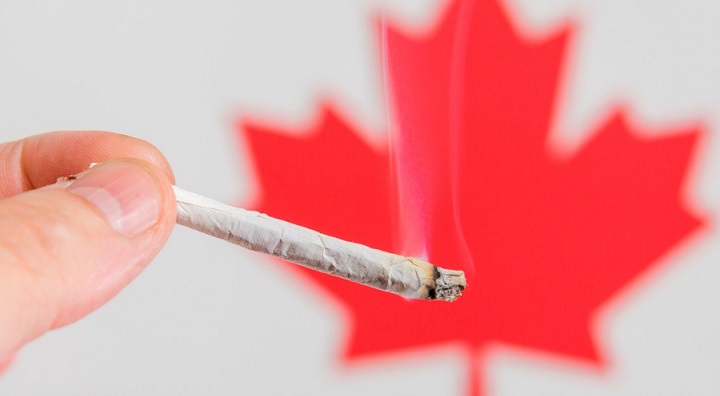With the giant growth rates of the legal cannabis industry, investors are flocking to marijuana investments like moths to a flame. The excitement is not unjustified, as sales are going up and changing public opinions are driving more governments to legalize the plant.
Several marijuana stocks that have market caps at around $200 million have seen their values double or triple over the past 12-month period. As well, according to the most recent published report from Marijuana Business Daily’s “Marijuana Business Factbook 2017”, legal U.S. marijuana sales are expected to expand around $5.1 billion to $6.1 billion this year, and then roughly increase by 45% next year. By 2021, sales are expected to hit more than $17 billion.
Mexico has just recently begun to move forward with legislation to legalize medical marijuana, while in Canada both recreational and medical use of cannabis is planned to be legalized by July 2018. Americans who want medical and recreational marijuana to be legalized federally is at an all-time high, according to Gallup’s 2016 poll as well as CBS News’ April 2017 poll.
However, with all these good news, not everything is as perfect as it seems. Marijuana stocks are still very risky to invest in, and currently, investors are more likely to see losses than returns.
These three marijuana stocks had a rough week
Canopy Growth Corp. (NASDAQOTH:$TWMJF), Aurora Cannabis (NASDAQOTH:$ACBFF), and Aphria (NASDAQOTH:$APHQF) saw their stocks fall by 6%, 11%, and 6% respectively. As such, these three companies were among the worst-performing marijuana stocks last week to the shock of many marijuana investors — Canopy Growth Corp., Aurora Cannabis, and Aphria are some of the largest Canadian-based medical cannabis producers and retailers.
With Canada looking to legalize both medical and recreational cannabis, why are the Canadian marijuana stocks falling? Despite Trudeau’s bill to get the plant legalized by next year, ongoing debate regarding recreational marijuana are still happening within the Canadian government.
The problem isn’t largely with the plant itself. Instead, mayors of some of Canada’s largest cities have raised concerns on regulatory costs in relation with enforcement, according to Huffington Post. Last year, an estimated $356 million to $959 million in revenue from sales tax revenue from legal recreational cannabis was projected to be earned during the first year of legalization. The earnings, however, will not be used to cover expenses from land-use issues, business license application processing, and actual enforcement of the purchase, sale, as well as recreational use of cannabis. The mayors are arguing to obtain a part of the revenue to pay for these expenses.
Leafly also reported last week that the Tories, Canada’s conservative party, wants to remove parts of the marijuana legalisation bill that would allow Canadians grow up to four cannabis plants in their household. The party is concerned that marijuana plants in the household would give children easier access to the plant. While this may be a positive for Canopy Growth, Aphria, and Aurora Cannabis as consumer demand would increase if allowance of homegrown cannabis were removed from the bill, the differing concerns of Canadian mayors and political parties shows just how incoherent Canada’s parliament can be when it comes to concerns regarding marijuana.
As such, just because Prime Minister Justin Trudeau have set up the bill to legalize recreational and medical marijuana does not give absolute guarantee that the bill would pass.
A rocky road ahead for all marijuana stocks
Those who made their marijuana investments in Canadian marijuana stocks have probably received quite a bit of a wake-up call. But don’t think that just Canadian stocks are experiencing problems. All investors with investments in marijuana or considering marijuana investing should definitely take note of a series of complications that lies ahead.
In America, while some states have legalized medical marijuana and a handful have legalized both medical and recreational marijuana, the legalization of marijuana at a federal level is looking slim with recently-elected President Trump. Trump had supported medical cannabis during his campaign, but with Jeff Sessions as Attorney General and avid opposer of marijuana, it does not look like the legalization of medical marijuana would be happening at a federal level any time soon — not to mention recreational marijuana.
Without the legalization of cannabis at a federal level, marijuana-based businesses could see a number of disadvantages. Within the U.S., companies in the weed industry are typically unable to receive basic banking services and take any normalized deductions. Without normalized deductions, companies have to pay corporate income tax on gross profits instead of net profits, which could eat into a lot of the revenue that could be used to expand or better products.
Like the three marijuana stocks that fell drastically last week, most marijuana stocks are losing money despite legal sales growth. It is important to keep in mind that the cannabis industry is still growing, and as a result many companies are startups. Many companies are spending just as much as they are earning at an alarming rate, and almost all companies that are developing cannabinoid-based drugs are losing money. Even Canopy Growth and Aphria experienced major loss despite being on track to achieve full-year profits.
Featured Image: twitter.com










